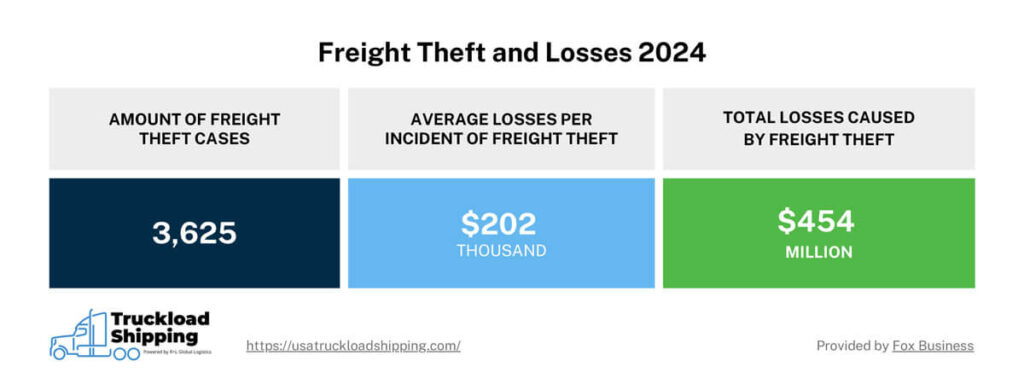Domestic Incoterms® define the responsibilities between buyers and sellers in shipping agreements. Although they’re technically meant to be used for international shipments, you can use them for your domestic loads. However, without a clear understanding of these terms, shippers risk misinterpreting their obligations that can lead to potential disputes.
Key takeaways:
Let’s break down domestic Incoterms® and look at the ways you can use them when shipping freight.
Domestic Incoterms® are standardized shipping terms that help buyers and sellers clearly define responsibilities for freight shipments within a single country.
These terms dictate a variety of factors, such as:
While Incoterms® are traditionally associated with international trade, they can also be applied to domestic shipping agreements to eliminate confusion and ensure smoother transactions.
For retailers shipping high volumes of palletized freight, not using the right one can lead to disputes, and even unexpected costs. That’s why it’s critical to understand how these terms work and which ones best fit your shipping needs.
There are 11 officially recognized Incoterms®, as established by the International Chamber of Commerce (ICC). Each one is designed to define the responsibilities of buyers and sellers in different types of transactions.
Here’s a list of each one:
Every 10 years, the ICC reviews Incoterms® and determines if any changes need to be made. This allows Incoterms® to meet the needs of buyers and sellers in the modern day. For example, the 2020 Incoterms® made some key changes to the older 2010 Incoterms®.
The new features of 2020 Incoterms® include:
Even though the ICC updates Incoterms® every 10 years, buyers, and sellers can still use older iterations of Incoterms® as long as both parties agree to do so. This applies to domestic shipments as well.
Not all Incoterms® are best used for domestic freight movements. That’s why we’ve explained the most relevant ones that will help shippers in the United States.
Under FCA, the seller is responsible for delivering goods to a specified location. This can include places like trucking terminals or warehouses. The term is most useful if you already have established partnerships with transportation providers that you prefer to use.
DDP means the seller covers all costs, including transportation and other fees, until the goods arrive at the buyer’s location. This gives you greater control over the shipping process, while simplifying the delivery experience for the buyer.
CIP requires the seller to pay for freight and insurance to a named destination. The risk transfers to the buyer once the goods are handed over to the carrier. Using CIP lets you control the final leg of delivery, while also placing protection on your goods.
There are many dangers that freight can be exposed to when traveling domestically, as the table I’ve provided shows.

Having insurance on goods will ensure compensation if a shipment falls victim to a disaster. We have an article on how to reduce transit damage that will help you better protect your shipment.
Under DAP, the seller arranges and pays for transportation to a specified location, but the buyer is responsible for unloading the freight. When you agree to DAP, you’ll only have to arrange the shipping process itself. Once your cargo arrives at the final destination, the buyer of your dry goods will unload it.
Related: Dry Goods Shipping
Despite the clear language that Incoterms® use to explain the responsibilities of buyers and sellers, there are many problems that can complicate the shipping process. Because there are terms that were developed for international use, not all practices or labels transfer over clearly.
Here are some key things to watch for:
Selecting the correct term that works in your favor as a shipper is essential. Using an unsuitable one can lead to increased costs or risks. Carefully read through each term and negotiate with your buyer on one that you can both agree on.
Ambiguity in specifying the delivery location can cause disputes. Clearly stating the exact address ensures you and the buyer of your goods understand where responsibilities transfer.
It's a common misconception that Incoterms® cover all aspects of a sales contract. In reality, they only define specific responsibilities that you and your buyer will have to fulfill. Distinguishing the responsibilities each party needs to fulfill that aren’t covered in the terms is essential as well.
Certain parts of Incoterms® rules will no longer be applicable when they’re used for domestic shipping. For example, Incoterms® delegate the responsibility of customs clearance for export and import to the buyer and seller differently. Tasks like these will no longer apply for domestic shipments.
While Incoterms® are widely used, some businesses prefer customized shipping agreements tailored to their specific needs.
These might include:
If you’re unsure which approach is best for your business, working with a reliable truckload provider can help simplify the process and ensure your shipments arrive smoothly.
Related: How To Negotiate Freight Rates
Having a reliable carrier is just as important as understanding domestic Incoterms®. At USA Truckload, we have a massive network of small carriers that we use to ship freight for our customers. We’ll pair you up with the right partner and make your shipping endeavors a success.
We offer a range of services to support your logistics needs:
Ready to simplify your shipping operations? Fill out a Request for Proposal (RFP) today. If you have further questions, feel free to call us at (866) 353-7178 or visit our contact page.
R+L Global Logistics
315 NE 14th St., Ocala, FL 34470